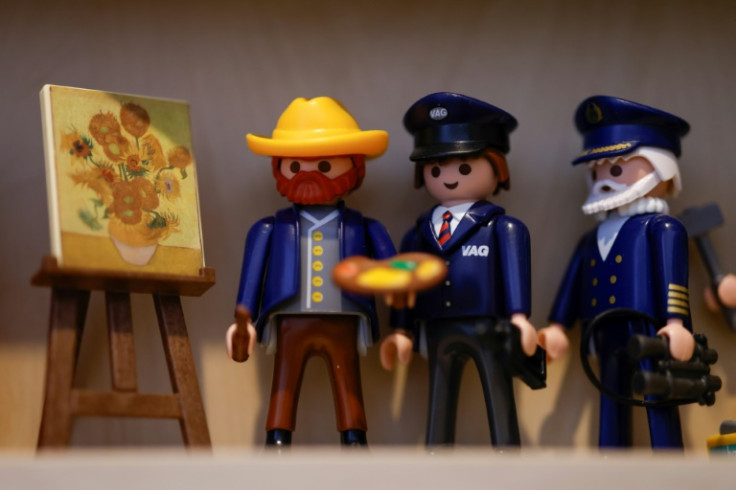Crisis-hit Playmobil Eyes A Swift Boost As It Turns 50

As Playmobil turns 50, the German company behind the popular plastic figures is hoping that pop megastar Taylor Swift can help it shake off a slump in fortunes.
Playmobil has in recent years lost ground to rivals, in particular Lego, the world's number one toymaker whose sales are 10 times greater than those of its German competitor.
The Danish company has been way ahead in the licensing business, boasting Star Wars, Harry Potter and a more recent addition -- Barbie -- in its portfolio.
Over at Playmobil, the picture is distinctly less glamourous. Its greatest ever success is a 7.5 cm (3-inch) figure of German Protestant firebrand Martin Luther, 1.3 million of which have been sold.
Things are about to change, Playmobil hopes. Boss Bahri Kurter said contacts have been made with people close to Swift -- one of pop music's most dominant forces -- and creative work has started.
"We will see how that develops," he told AFP, adding that a figure of the US star "would be a huge dream".
Kurter admitted that Playmobil "started late" in the licensing business.
But this is far from the only reason the maker of plastic figures -- whose headquarters are in Zirndorf, rural Bavaria -- has been through a period of turbulence.
Rising energy prices and inflation exacted a heavy toll, as well as lingering supply chain woes in the wake of the coronavirus pandemic.
A cost-cutting drive is underway, with about 700 jobs worldwide -- almost 20 percent of the workforce -- to be axed. Half of the jobs to go are in Germany, as sales fall.
Playmobil's parent company, the Geobra Brandstaetter Group, had to scramble to reorganise after the death of its founder, Horst Brandstaetter, in 2015.
The changes caused tensions with unions, who accused the new management of "trampling" the group's heritage.
Against this challenging backdrop, Kurter took charge of Playmobil in April last year.
The company traces its roots back to 1908, and in its early years manufactured products like toy telephones and money boxes.
The 1973 energy crisis hit the company hard as the price of oil, and plastic, soared.
Designer Hans Beck was ordered to come up with a new product that used less pricey plastic, and the result was Playmobil.
Three models were initially launched -- a Native American, a knight and a worker -- and proved a hit.
Numerous new characters and accessories have since been introduced, although the company traditionally sought to keep the toys simple, giving youngsters the chance to use their imaginations.
In half a century, more than 3.9 billion figures have been sold worldwide although they are less common in children's bedrooms than they used to be.
"The toy market is subject to enormous competition," particularly nowadays from games on computers or tablets, said Harald Lange, a specialist in educational games at the University of Wuerzburg.
The impact is clear at Playmobil, which has lost a third of its sales among four- to eight-year-olds in the past eight years, according to Kurter.
As well as tie-ups with popular figures like Swift, the company is targeting nostalgic adults and so-called "kidults" -- grown-ups who still enjoy playing with toys.
Playmobil is increasing its range of celebrities, and sportsmen and -women to appeal to an older generation.
One such fan is Peter Bischofer, a 57-year-old who became an avid Playmobil collector in his 40s.
Playmobil brings back "childhood memories", and evokes an era when toys "weren't as elaborate", he told AFP.
At his home in Merching, in southern Bavaria, he has collected hundreds of Playmobil models, with a preference for vintage ones.
Playmobil prides itself on manufacturing its products in Europe -- Germany, Spain, the Czech Republic and Malta.
It is also seeking to burnish its sustainability credentials at a time companies face mounting pressure to show they are green.
"The toddler range is moving to 90 percent plant-based raw materials," said Kurter. "That's a start."
© Copyright AFP 2024. All rights reserved.





















